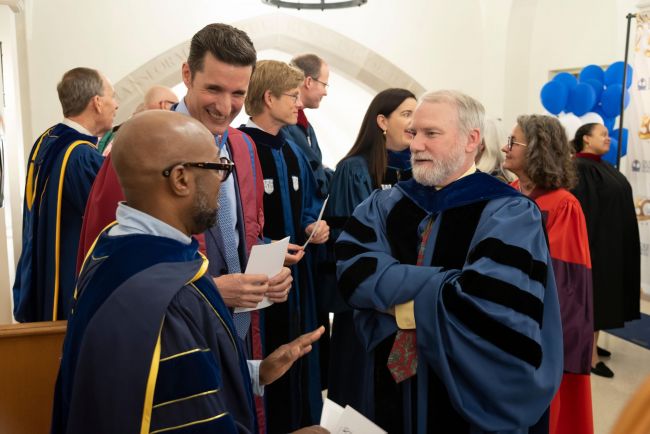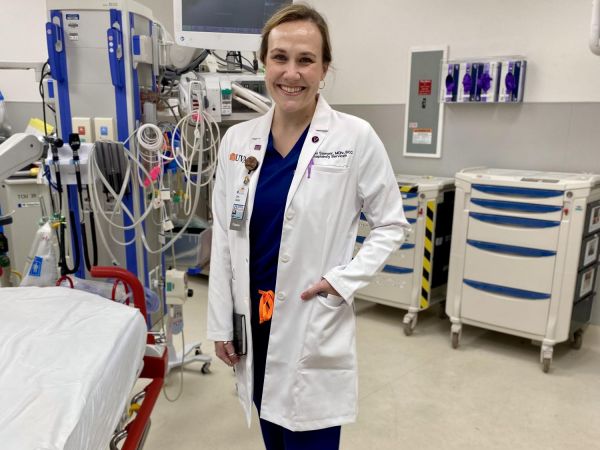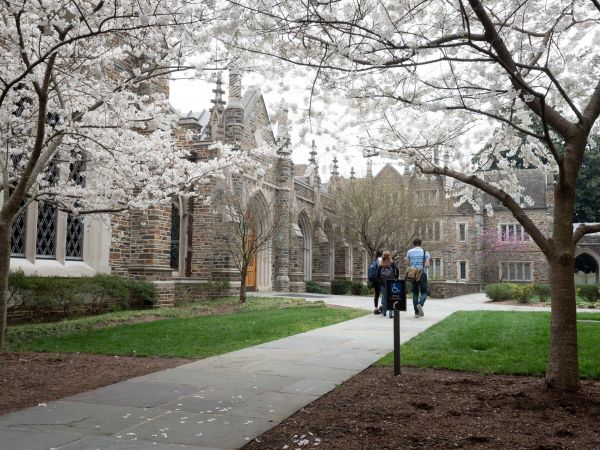The Master of Theology (Th.M.) degree is designed for graduates of accredited theological schools who desire to continue or resume their theological education to enhance their professional competence in specific areas of study.
Through this degree program, students can pursue advanced training—with opportunities to take doctoral seminars and engage closely with professors on a written thesis—to enhance their ministry or prepare for a doctoral program.
Th.M. graduates have been placed at Ph.D. and D.Min. programs at schools including Duke University, Princeton Theological Seminary, Baylor University, Asbury Theological Seminary, Boston University, and University of North Carolina at Chapel Hill.
"The Th.M. at Duke equipped me for doctoral work and continues to inform my scholarship."

Distinguished Faculty
At Duke Divinity School, you'll be immersed in theological inquiry with world-renowned faculty members. Drawn from all over the globe and a broad spectrum of Christian traditions, these men and women share a commitment to teaching and to the church and ministry.
Training for Military Chaplaincy
Chaplains serving all branches of the U.S. military who are approved for a year of specialized training can meet that requirement through Duke Divinity School’s Th.M. program. We offer a Certificate in Chaplaincy that can be earned alongside your degree.

Curriculum
The curriculum for the Th.M. consists of eight elective courses taken over two semesters (four must be at 800-900 level). During the final semester, students often work directly with a faculty advisor towards completion of a substantial written thesis.
At least four of the eight courses must be taken in one of the basic theological disciplines and will be designated as the student's major. These disciplines are: Biblical Studies, Historical Studies, Theological Studies, and Ministerial Studies.
Graduation Requirements
The Master of Theology program is normally completed in two semesters. Requirements for graduation are:
- Eight advanced course units
- An average grade of B or higher
- Comprehensive exam or thesis: Each student is required to demonstrate superior performance on a comprehensive examination covering the major area of study. In lieu of the exam, a student may choose to write a thesis in one major area. This thesis research project is counted as one of the eight course credits required.
The Center for Academic Support and Theological Writing
The Divinity School is committed to developing you as a writer. The Center for Writing and Academic Support provides services for writers of all abilities. In addition, we offer the RISE pre-orientation workshop to introduce the fundamentals of theological thought and writing; ongoing academic support workshops throughout the year; and tutors who are available to work with students one-on-one.



An education from Duke Divinity School is worth your investment, and you do not have to figure out the finances alone.
Some internal and external scholarships, as well as federal financial aid in the form of work study and loans, make it possible for students to afford Duke Divinity. FAFSA should be completed for external aid. More information can be found in our Financial Aid section. We offer a 100% scholarship for one international Th.M. student each year.

Lifelong Dividends
In addition to earning a degree from Duke Divinity School, you also receive benefits that continue to impact your life long after you leave. You will have access to the best academic resources in theological education and will use those tools throughout your career. Theses that are crafted with Duke Divinity faculty members become seeds that may grow into future doctoral projects. By being able to fully participate in a top tier research university, your scholarship can create room for surprising and creative interdisciplinary connections. The overwhelming majority of our students say their investment is worth it.
Ready for the Next Step?
Duke Divinity School accepts applications for the Master of Theology program beginning in September and concluding with the application deadline in April. For admission, we require a GPA of 3.25 in a Master of Divinity (M.Div.), Master of Theological Studies (M.T.S.), or comparable master’s degrees from an ATS-accredited school prior to the intended date of enrollment.
Request Info
Join our mailing list, and we'll send you more information.
Request Info about our programsVisit Campus
The best way to learn more about us is to visit. Schedule an in-person or online visit.
Visit Us







